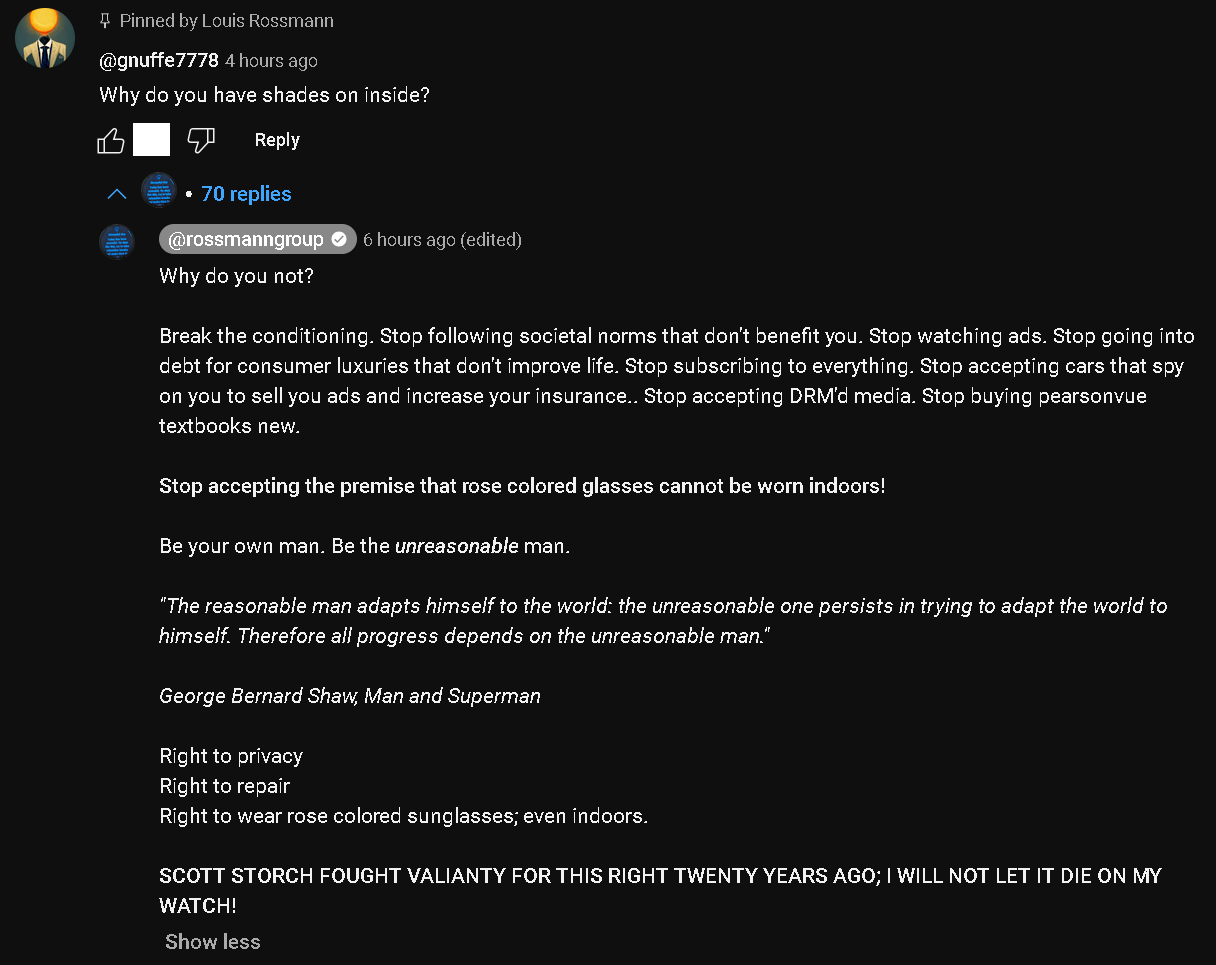Summary
- The speaker lists four things that should not be named, including Voldemort from Harry Potter.
- A controversial figure is discussed in relation to a mobile repair subreddit and a New York state government decision negatively impacting their business.
- A video application called Gray J is introduced, designed to help users follow creators across different platforms while maintaining privacy.
- The speaker praises Linus from Linus Tech Tips for his video series “DeGoogle Your Life,” which highlights alternatives to big tech services that invade privacy.
- Linus’s recent ad-free YouTube video was removed for alleged community guideline violations, reflecting broader issues with YouTube’s priorities.
- The speaker recalls a similar incident involving another content creator, emphasizing the challenges faced by those who speak out against big tech practices.
- A YouTuber relying on advertising revenue had a video deleted due to community guideline violations, promoting unpaid open-source software.
- The speaker questions whether the deletion of this video is coincidental, especially since it addressed reducing reliance on Google services.
- The speaker calls for community support for the YouTuber and curiosity about the implications of Google’s actions on both the YouTuber and the mentioned software.
- The video concludes with a humorous note about learning and understanding the situation better.
Key Points
- Censorship Concerns: The removal of Linus’s video for discussing privacy tools highlights the ongoing issue of censorship on major platforms. This raises questions about the motivations behind such actions.
- Promoting Alternatives: Linus’s commitment to promoting non-proprietary software showcases the importance of alternatives in a world dominated by data-hungry corporations. This could empower users to reclaim their privacy.
- Community Impact: The tech community’s response to Linus’s video removal will be crucial in advocating for transparency and fairness in content moderation practices across platforms.
- User Empowerment: By educating viewers on privacy tools, Linus is empowering them to take control of their digital lives, which is vital in today’s data-driven landscape.
- Integrity Over Profit: Linus’s choice to feature software that doesn’t sponsor him demonstrates his integrity and commitment to user welfare over financial gain, making him a trustworthy figure in tech.
- Long-term Implications: The backlash faced by Linus may have broader implications for content creators discussing sensitive topics, impacting future discussions on privacy and data rights.
- Advocating for Change: The situation calls for a collective effort within the tech community to push back against unjust platform policies, ensuring creators can advocate for user rights without fear of repercussions.
Pinned by Louis Rossmann
Comment:
@gnuffe7778 | 4 hours ago
Why do you have shades on inside?
Louis reply:
@rossmanngroup | 6 hours ago (edited)
Why do you not?
Break the conditioning. Stop following societal norms that don’t benefit you. Stop watching ads. Stop going into debt for consumer luxuries that don’t improve life. Stop subscribing to everything. Stop accepting cars that spy on you to sell you ads and increase your insurance… Stop accepting DRM’d media. Stop buying pearsonvue textbooks new.
Stop accepting the premise that rose colored glasses cannot be worn indoors!
Be your own man. Be the unreasonable man.
“The reasonable man adapts himself to the world: the unreasonable one persists in trying to adapt the world to himself. Therefore all progress depends on the unreasonable man.”
George Bernard Shaw, Man and Superman
Right to privacy
Right to repair
Right to wear rose colored sunglasses; even indoors.
SCOTT STORCH FOUGHT VALIANTY FOR THIS RIGHT TWENTY YEARS AGO; I WILL NOT LET IT DIE ON MY WATCH!
Screenshot of Pinned Comment:

Scott Spencer Storch is an American record producer and songwriter. Storch began his career as part of Philadelphia-based hip hop band the Roots, which he joined as a keyboardist prior to the release of their 1993 album, Organix. He provided the keyboard riff and co-produced Dr. Dre’s 1999 single “Still D.R.E.,” and contributed in a similar role to the rapper’s productions during late 1990s. Storch expanded his solo production work into the 2000s; he was credited on five Billboard Hot 100-number one singles—Beyoncé’s “Baby Boy,” Terror Squad’s “Lean Back,” 50 Cent’s “Candy Shop,” Mario’s “Let Me Love You” and Chris Brown’s “Run It!”—among other similarly successful chart entries throughout the remaining decade. Storch has been nominated for four Grammy Awards.

